The US has deployed 5 destroyers to the coast of Venezuela, the Bolivarian Republic has mobilized.
The US has deployed 5 destroyers to the coast of Venezuela, the Bolivarian Republic has mobilized.
By María Luiza Franco Busse*
The global imperialist offensive launched by the current U.S. government has unearthed the Plan Colombia to combat drugs in Latin America and the Caribbean. With that, it has confronted Venezuela with a naval force anchored south of the international waters of the sea that bathes the Caribbean country. Before that, Washington designated the Venezuelan president as the main drug trafficker of the Cartel and offered a reward of 50 million dollars for his capture.
The siege of Venezuela makes it opportune to recall the plan that 25 years ago gave the United States a carte blanche to intervene in the countries of Latin America and the Caribbean in the name of guaranteeing their internal security, which would be threatened by drug trafficking and consumption. This goes back to 1970, when then-US-President Richard Nixon had declared drug trafficking ‘public enemy number one of the country’. Just as the imaginary of the West’s conquest persists in the belief that what is good or bad for the United States applies to everything else, what is not good for the United States is not good for anyone, and this is where Venezuela, or rather, the Bolivarian Republic of Venezuela, comes in.
With the election of President Hugo Chávez, the expulsion of the State Department in 2005, and the 1999 Constitution promulgated in 2009, Venezuelan territory ceased to be a backyard of the United States and took its place as the sovereign Bolivarian Republic of Venezuela, the strongest, most consolidated, and leading direct and popular democracy in Latin America and the Caribbean.
Since then, the country has resisted coups, financial looting and trade blockades.
Now, with armed US destroyers and a nuclear submarine in their tow at its coastline, the Bolivarian government issued an official 22-line statement on Wednesday, August 20, warning that “these threats not only affect Venezuela, but also put at risk the peace and stability of the entire region, including the Zone of Peace declared by CELAC, a space that promotes sovereignty and cooperation among Latin American peoples.”
The statement also considered that “every aggressive statement confirms the inability of imperialism to subjugate a free and sovereign people,” and said that “the peoples of Bolivar and Chavez will continue to defeat any attempt at intervention” because “Venezuela is a beacon of dignity, resistance and security for Latin America and the world.”
The certainty expressed in the document is anchored in the legacy of Lieutenant Colonel Hugo Chávez, who had died during his mandate and is recognized by the Bolivarian Armed Forces of Venezuela as their eternal commander. Chávez called on the people, the armed forces and the police to build and govern together the new Republic, so dreamed of by Simón Bolívar, the military man who fought for the independence of the continent from Spanish rule.
Chávez said that the Bolivarian Republic was a country of peace with the armed people. For 17 years, the civilian volunteer corps has received military training with the mission of maintaining internal security, defending the revolution and supporting the Armed Forces. To confront the current intimidation, the government of Nicolás Maduro has summoned 4,000 members of the Popular Militias willing to arrest the 4,000 soldiers embarked on the U.S. fleet, including marines and sailors.
The Bolivarian National Armed Forces, for its part, is on standby. For the avoidance of doubt, four-star General and Defense Minister Vladimir Padrino López addressed the nation the day after President Nicolás Maduro was labeled a drug trafficker, the reason of state given by the empire to justify a desired invasion. In the 29-minute and 39-second speech, Vladimir Padrino said that since the expulsion of the State Department, the transit of drugs in Bolivarian territory has been reduced. In 2012, 398 aircraft were intercepted under the Airspace Control Law, in 2025 clandestine airstrips and laboratories installed on the borders were destroyed, and the government seized more than 51 tons of drugs.

“We will not rest and dismantle narratives that use the United States as a political weapon,” Padrino said. Below are the last paragraphs of the statement:
“We want to make it clear to imperialism that Nicolás Maduro Moro is the constitutional president of the Bolivarian Republic of Venezuela and our commander in chief, who exercises the highest hierarchical authority of the institution in accordance with the provisions of the Constitution of the Bolivarian Republic of Venezuela and, in addition, it is its revolutionary leader who has won the affection of the institution. With deep knowledge of it and permanent example of compliance with the principles that characterize us such as patriotic love, self-denial of work, discipline, honesty, and total dedication to the defense of the highest interests of the people of Venezuela.”
“Likewise, you should know that the Bolivarian National Armed Forces is not an organization of mercenaries. Military dignity and honor are imponderable values that we have inherited from our libertarian lineage. We cannot be blackmailed, and we will not accept insolent ultimatums, neither from foreign powers nor from powers that reappear today in this process of international change.”
“We ratify, as a result, absolute loyalty and unrestricted support for our commander in chief, whose integrity we will defend against any internal or external threat.”
“Finally, we declare ourselves on permanent alert to confront, combat and neutralize any action that threatens the stability and peace of citizens, as well as the protection of the territory. We will continue to defend in perfect popular, military and police fusion, even with our own lives, if necessary, the freedom, independence and sovereignty of this beloved homeland. As our liberator Simón Bolívar said on October 7, 1818, “it is the same for Venezuela to fight against Spain and against the whole world if the whole world offends it.”
“Don’t be clumsy, don’t be clumsy. Make no mistake about Venezuela. Chávez lives. The free homeland. Independence and socialist homeland. The Venezuelan sun rises in the Essequibo. Always loyal. We will win,” the general concluded.
Scholars say that the character of the Bolivarian armed forces comes from the fact that they were not formed to invade other countries, but to liberate their own from the colonialist yoke. It makes sense.
Maria Luiza Franco Busse* Journalist and Semiologist. University professor. She holds a degree in History, a Master’s degree and a PhD in Semiology from the Federal University of Rio de Janeiro. Postdoctoral Fellowship in Communication and Culture, also from UFRJ, with work on communication and politics in China.
This article was originally published on the Brasil 247 portal.
Cover photo: REUTERS/Leonardo Fernández Viloria/File Phot







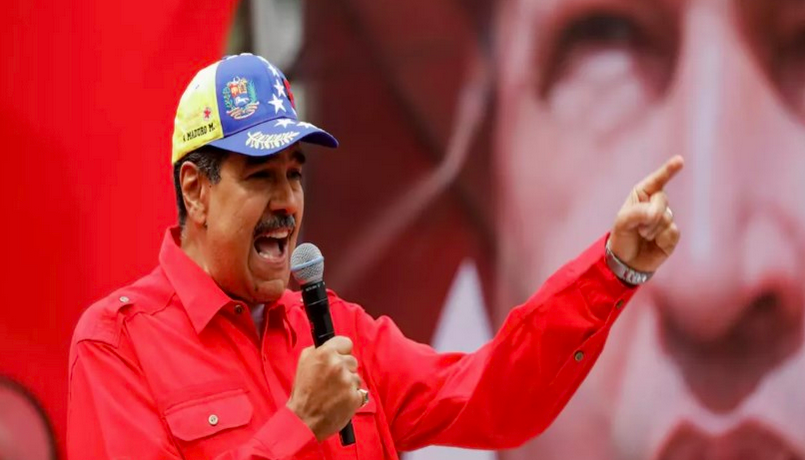




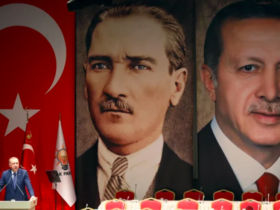
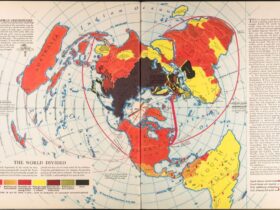
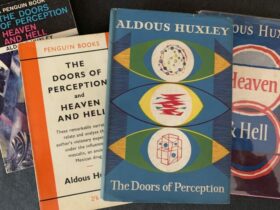
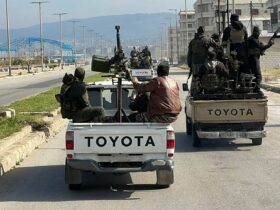

Leave a Reply